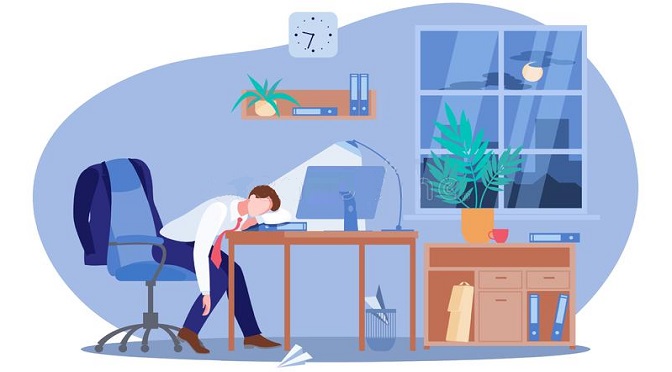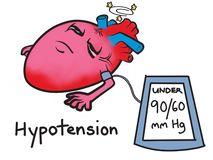Fatigue is a term used to describe a total lack of energy.
You are constantly tired, you have a general feeling of lethargy, you have difficulty concentrating, you feel irritated and hypersensitive to noise and sleep does not give you enough rest in the morning. If this fatigue does not go away with rest and persists for weeks, you should see a doctor who will try to find the cause.

When no underlying cause is found, fatigue is attributed to a condition called chronic fatigue syndrome. It is not uncommon, however, for fatigue to be associated with insufficient oxygenation. Here are three reasons why you may feel permanently tired.
Anemia
The bloodstream supplies cells with oxygen and essential components that are used by cell mitochondria to produce a molecule called adenosine triphosphate (ATP) that energizes the body. Red blood cells carry a protein, hemoglobin, which carries oxygen to the tissues. Even if you have a sufficient number of red blood cells it may have low hemoglobin. A critical component for the creation of red blood cells and the transport of oxygen is iron. The most common form of anemia is iron deficiency anemia, when there is a lack of iron in the diet or reduced absorption by the body.
Other causes of anemia include folic acid or vitamin B12 deficiency.
Vitamin B12 is also needed for the formation of red blood cells and therefore if for any reason it is missing from the body the result is fatigue.
Vitamin D has also been linked to fatigue.
Hypotension
Another cause of fatigue can be hypotension, ie low blood pressure. Systolic blood pressure up to 120 mmHg and diastolic blood pressure up to 80 mmHg are considered normal. In hypotension, systolic blood pressure is below 100 mmHg and sometimes below 70 mmHg.
Hypotension means that the blood may not circulate well enough and therefore the body may not receive enough oxygen and other nutrients. Women of childbearing potential often experience hypotension due to menstrual blood loss and a variety of hormonal factors. Alcohol causes dehydration and can lower blood pressure while water hydrates and causes an increase in blood pressure.

You may also feel tired when you have only orthostatic hypotension. This condition refers to a sudden drop in blood pressure as you move from a sitting to an upright position. In orthostatic hypotension there is a decrease in blood pressure by 20/10 mmHg in the first three minutes after switching to an upright position.
Sleep apnea
If you snore loudly and feel tired when you wake up in the morning you may have sleep apnea, a disorder characterized by brief episodes of sleep apnea. When you repeatedly stop breathing for short periods of time throughout the night, this makes you wake up more often and it is also more difficult to enter the REM phase – the deeper phase of sleep.
As a result, you feel tired the next day. Other signs of sleep apnea include waking up with a dry mouth and headache.
Source: vita4you.gr